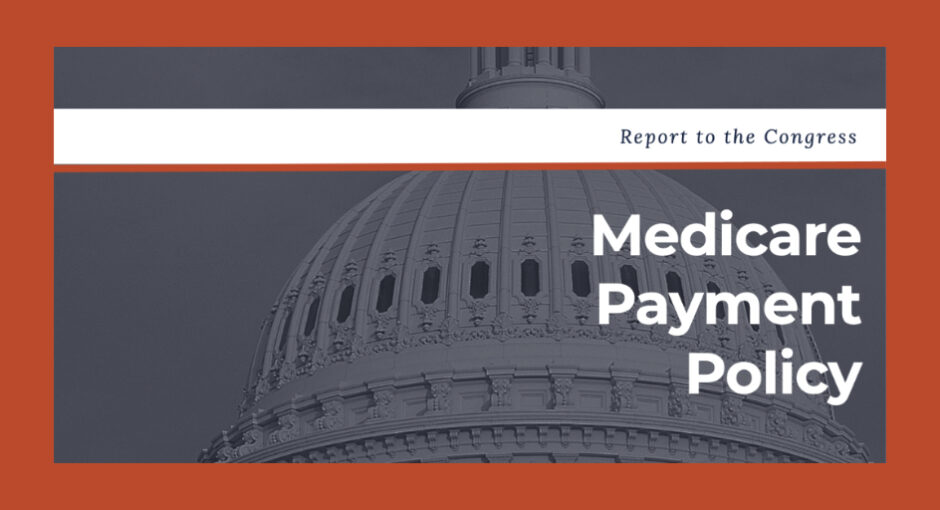Congressional Medicare advisers yesterday formally recommended replacing the formula Medicare uses to distribute extra payments to safety net hospitals that disproportionately serve low-income and/or uninsured beneficiaries.
The 340B program uses the same calculation—the Medicare disproportionate share adjustment percentage—to determine eligibility for five of the six kinds of hospitals that participate in 340B. The Medicare Payment Advisory Commission says if Medicare stops using the DSH formula and starts using its proposed new Medicare Safety-Net Index (MSNI), nothing will stop the 340B program from still using the DSH formula.
340B’s use of the DSH formula, however, has been under fire for years. A frequent criticism is that 340B is an outpatient drug program and the Medicare DSH adjustment percentage is based on hospital inpatient days. Just last week, Pharmaceutical Research and Manufacturers of America and the National Association of Community Health Centers jointly called for new 340B hospital eligibility requirements “including quantitative metrics that appropriately identify hospitals treating a disproportionately large share of low-income patients on an outpatient basis.”
MedPAC Executive Director James Mathews said last fall that “we are not in any way, shape, or form suggesting changes to the 340B program” by developing the MSNI concept. No matter what MedPAC said, however, if Congress decides to revamp 340B hospital eligibility criteria, it may consider importing MSNI or a twist on it into 340B.
MedPAC pitched the MSNI concept to lawmakers yesterday in its annual March report to Congress. Its recommendations are not self-executing. Congress is free to enact, adapt, or ignore them.
Under MedPAC’s plan, $2 billion would be added to current Medicare DSH and uncompensated care payments, and the entire amount would be distributed using the MSNI. In Medicare fee for service, MSNI funds would be distributed to hospitals as add-ons to Medicare inpatient and most outpatient payments. Separately payable Part B drug claims would be excluded from the outpatient add-on calculation. “Including separately payable Part B drugs in this policy would create incentives for certain safety-net providers to specialize in providing expensive Part B drugs,” MedPAC said.
Hospitals would receive commensurate direct MSNI payments for services to Medicare Advantage enrollees.
A hospital’s MSNI would be computed as:
- the share of its Medicare volume associated with beneficiaries who receive the Part D low-income subsidy
- the share of revenue the hospital spends on uncompensated care (bad debts and charity care)
- the share of total volume associated with Medicare beneficiaries.
MedPAC said “the MSNI is a better indicator of financial status of hospitals serving large shares of low-income Medicare beneficiaries than the DSH metric.” Adopting MSNI, it said, “would better direct supplemental payments to hospitals that care for a high share of Medicare beneficiaries with low incomes.”
The transition to MSNI “would remove the adverse incentives and inaccurate targeting of Medicare’s current safety-net payments,” MedPAC said. “However, DSH computations could still be made to determine eligibility for certain programs, such as the 340B program.”
Hospital Group Pans Proposal
The group America’s Essential Hospitals said in a statement yesterday that MedPAC’s MSNI proposal if adopted “could have the perverse effect of shifting resources away from hospitals that need support the most.”
“Any practical definition of a safety net provider must consider the care of Medicaid and uninsured patients, yet the MSNI misses on both counts,” Senior Vice President of Policy and Advocacy Beth Feldpush said.
America’s Essential Hospitals wants Congress to codify an “essential hospital” definition and designation comparable to those for sole community hospitals and critical access hospitals. In those case, “policymakers recognized the need to formally codify defining criteria and policy incentives to stabilize and protect these important providers within the larger health care ecosystem,” the group says. “Today, essential hospitals lack similar and crucial benefits and protections.”
In its statement yesterday, America’s Essential Hospitals urged policymakers to develop such a designation “and to reject the MSNI as a part of that process, as it would jeopardize access to care for marginalized patients and harm hospitals that operate on low margins and rely on public payers. Further, policymaking for these hospitals should supplement, rather than redistribute, existing Medicare DSH funding, which reflects a congressionally sanctioned, well-established methodology.”


